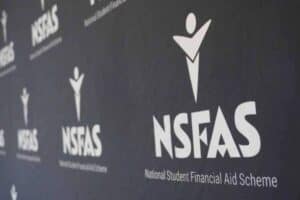Where free speech is curtailed, freedom to learn also suffers.

In 2005, when my daughter applied to universities for further study she simply refused to apply to a SA university.
She resolutely applied to universities abroad.
When I asked her why, she responded: “You were at UWC for 21 years; you were a member of UCT’s council for many years; and thereafter a member of Stellenbosch University’s council. Through you I got to know much about SA universities; I will not go to any of them, my ambitions are far higher than what these institutions have to offer.”
While I thought her rather arrogant, I later realised that she had foresight and vision about what she wanted in life.
Justifiably, she was worried that SA would thwart her ambitions.
Today, she has degrees from prestigious universities, is an aviation mechanic and plane captain in the American Navy and teaches economics at a university in California.
When she struggled with maths and economics, there were maths and economic problem centres she could attend for extra mentoring at her university, finally graduating with cum laude.
Her achievements were made possible by institutions of higher learning where the student was central to the academic project.
Furthermore, her success exemplifies what SA students are capable of when placed in centres of higher learning with world-class professors.
This week, I watched with sadness a massive marquee being erected on UCT’s rugby fields, intended as an exam venue for more than 20 000 students.
Guarded by police, razor wire, access control, the marquee, while resembling a Saudi Arabian wedding event, has come to representthe ultimate consequence of anarchy.
I thank God that my daughter had the foresight to chart a different path for herself.
Where free speech is curtailed, freedom to learn also suffers. Lecturers at UCT and Cape Peninsula University of Technology write about having to slip into their offices under cover, or having to stay at home.
Under such circumstances, what quality controls are in place to ensure academic excellence? Rumour has it that UCT’s LLB has been downgraded by the Council on Higher Education.
Once a flagship faculty, it now ironically suffers from a lower accreditation ranking, ironically under a black female dean. If the LLB has begun to slip, what about degrees in the humanities and the social sciences, many ranked lower than law traditionally? Universities owe parents an explanation.
To date, they have been disrespected in the academic equation, despite paying dearly for tuition fees.
They need to be heard. Earl Warren, 14th chief justice of the US said: “Churchmen are quick to defend religious freedom; newspapers are most alert to civil liberties when there is a hint of press censorship in the air. And educators become perturbed at every effort to curb academic freedom. But too seldom do all of these become militant when ostensibly the rights of only one group are threatened. They do not always react to the truism that when the rights of any individual or group are chipped away, the freedom of all erodes.”
More than a century ago, Albert Einstein warned that any restriction on academic freedom hampers the dissemination of knowledge, thereby impeding national judgment and action.

FILE PICTURE: Rhoda Kadalie, anti-apartheid activist.
Support Local Journalism
Add The Citizen as a Preferred Source on Google and follow us on Google News to see more of our trusted reporting in Google News and Top Stories.






